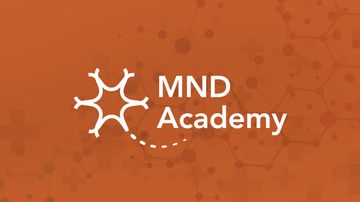MND Awareness Day: transforming lives through supported decision-making
NewsMND Awareness Day is embraced globally and is deliberately on 21st June - the Summer Solstice, or Midsummer's Day, because of its associations with change and rebirth.
This MND Awareness Day, we want to raise awareness of the importance of informed, engaged and iterative decision-making from an early point post-diagnosis, because of its transformative impact on a person with MND's quality of life.
A recent study in BMJOpen examined emotional distress in those affected by MND and found it to be high in both those living with the condition and their family carers.
‘The short prognosis that accompanies a diagnosis of MND led to feelings of anger, disappointment, sadness and feelings of being robbed/cheated of a future.’
Pinto 2021
The study noted that 'keeping up with the constant changes in symptoms and feeling unsupported by the healthcare system added to emotional distress' and that support which provided a sense of hope, positivity and control were very important.
Dietician Sean White gave a brilliant presentation at the Palliative Care MasterClass in May on the level of decision-making required when living with MND and the ways that healthcare professionals can best support the decision-making process.
As soon as someone is diagnosed with MND they're immediately faced with so many, multi-faceted decisions. Big decisions.
Not 'Do you want this pill, it might give you a bit of diarrhea'… These are huge decisions that impact the patient and the carer. Gastrostomy, NIV, where do you want to die, modifications to your house, communication, texture-modified feeding…
Sean White, dietician
Highlighting the cyclical nature of decision-making (King et al 2019) and the need for an iterative process which allows for step changes in a persons' condition (Hogden 2014), he discussed enablers and barriers to decision-making. This included motivations and personal beliefs, capabilities both physical and cognitive, and opportunities including environmental and social (Coates et al 2021).
Sean explains that part of decision-making is explaining what the decision-making process itself will be - who will be involved in the discussions, where and when these discussions will take place and what will be discussed, and what the decision they are making is.
He also makes it clear that there are three options available around every decision around an intervention - to accept, to defer, or to decline. Whatever option they chose, this is still an ongoing discussion; their circumstances or changes in their condition may lead them to a different decision in the future, or to change their minds completely, which is entirely their right.
People with MND say that they often feel like they didn't have a choice, and that's because the alternative is something that they don't see as a choice - the non-treatment associated with morbidity doesn't feel like a choice
Sean White, dietician
Sean notes that choices about nutrition feeding options are highly emotive for people. Decision support interventions that acknowledge and address this level of emotion, and that support a persons' autonomy can enable people with MND to make informed and timely decisions about gastrostomy, enteral feeding and ventilation (White 2023).
'My Tube' is a website created to support people with MND in the decision-making process around nutrition and whether enteral feeding is right for them. It provides information about all elements of the procedure and life with a feeding tube, and features people living with MND who use enteral feeding to support their nutrition and medication access.

This video can be found on the Mytube website, linked above.
People with MND not only face a high volume of very impactful decisions, they may have different opinions on these decisions to their loved ones which can cause tension and require support from healthcare professionals to manage these differing opinions with compassion and without conflict.
Another factor to consider is the person's cognitive abilities and what this might mean for decision making. Cognitive impairment affects up to 50% of people with MND - rising to 80% as the disease progresses - and can have a big impact on people's ability to make informed decisions.
If the person with MND is also experiencing communication difficulties, changes in their cognitive processing can add increasing complexities to how to approach and arrive at a decision. It does not, however, necessarily mean that they do not have capacity to make their own decisions (Mejia 2019).
Talking early on about how cognition may be affected so that the person with MND and their loved ones can understand and adapt to this potential change can make it a more manageable symptom and ensure everyone can approach decisions with an awareness that this may need varied or altered approaches.
Tools, resources and ideas
MND patient decision support tool is an online tool developed by a collaboration of people affected by MND and healthcare professionals, and led by researcher Dr Anne Hogden
Mytube is a web space featuring information on for people with MND who are considering a gastroscopy tube
Gastronomy tube: is it for me? is a decision-making tool developed by Southampton University, MND Association and Marie Curie.
Early involvement of speech and language, and use of a fiberoptic endoscopic evaluation of swallowing (FEES) to monitor swallowing and initiate early discussions around preferences for eating and drinking
If you're not sure how cognitive impairment can be supported well, or how to tailor your conversations to make sure you're both communicating effectively, there are some helpful talks and tools on our Mild cognitive impairment course, freely accessed online.
Finally - MND in a nutshell
If you're completely new to MND, this infographic from MND Association provides a handy overview:

(Much of this information came from the Palliative Care MasterClass in May this year - more information on the content can be found in our write-up here.)
Related articles
MND Academy
Better understanding, optimised management, improved quality of life

